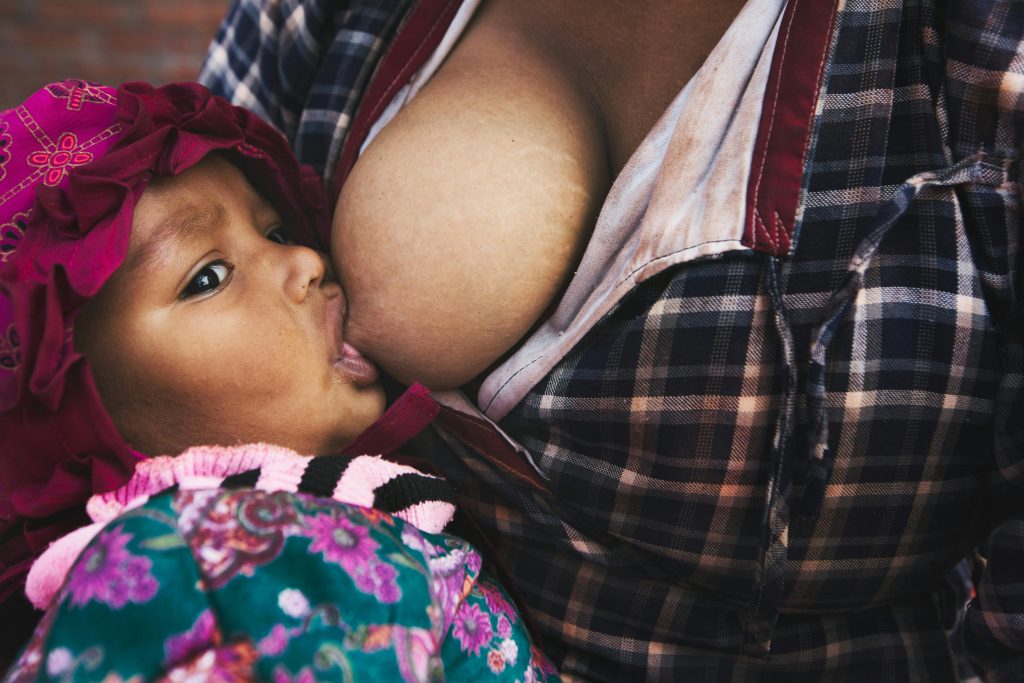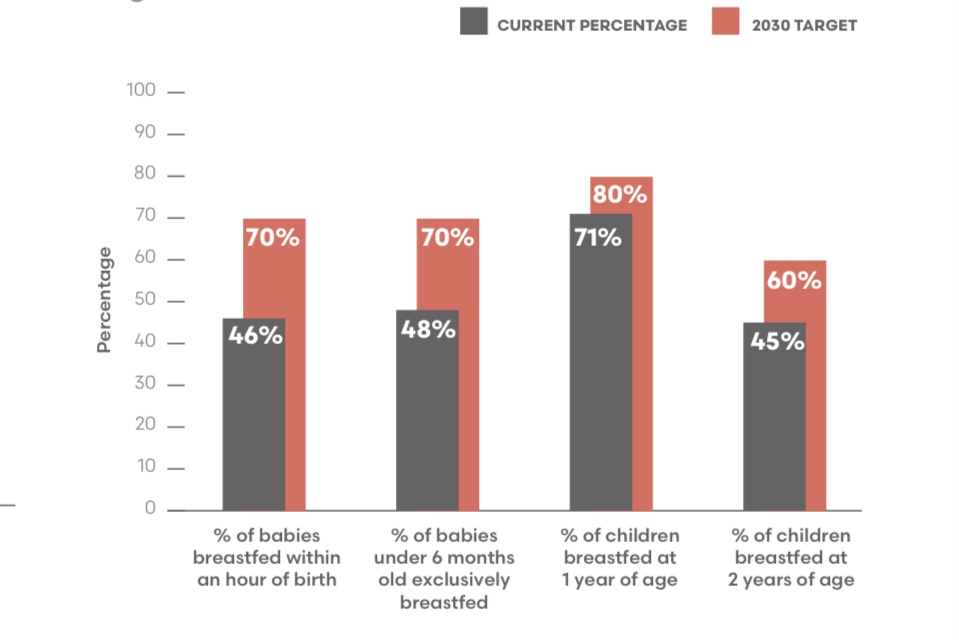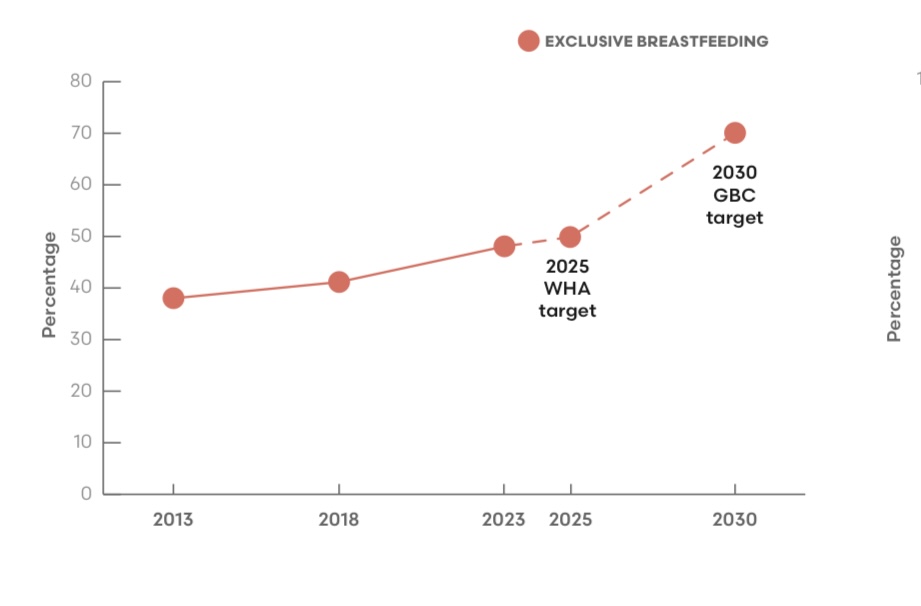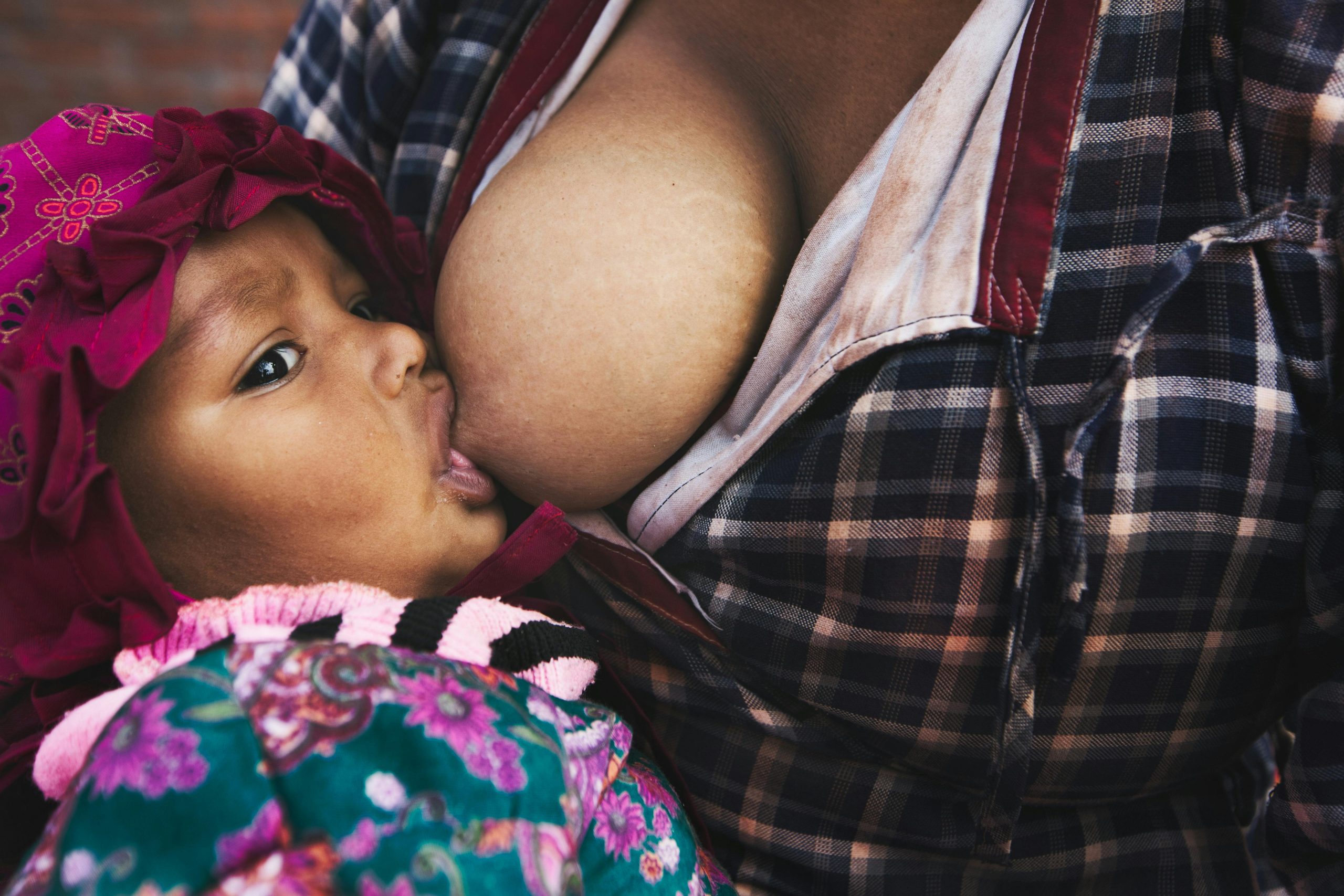
By Siphesihle Dlamini
The Clinic Group Paediatrician, Dr Charity Newton says breastfeeding is the best investment any country can make.
Her insights shed light on how this natural practice not only nourishes infants but also plays a pivotal role in shaping the future of nations. Dr Newton said this during the World Breastfeeding Week Commemoration held at Mbabane Clinic.
This annual celebration, held from August 1 to 7 in over 120 countries, is championed by the World Alliance for Breastfeeding Action (WABA), the World Health Organization (WHO), and UNICEF, among other organisations, to promote exclusive breastfeeding for the first six months of life.
Dr Newton emphasized that breastfeeding is critical for building a generation of individuals with higher intelligence quotients (IQs). “It creates a better future and world for us. Remember, the future begins at birth. Breastfeeding can help raise smarter leaders,” she asserted.
Nutrition
However, she also warned that if current trends continue, the rates of breastfeeding may decline dramatically, with projections indicating that breastfeeding rates could fall significantly by 2030 if proactive measures are not taken.
The discussion surrounding breastfeeding is not merely about nutrition; it encompasses a wide array of health benefits that are crucial for both infants and mothers. Breast milk, often referred to as the “gold standard” of infant nutrition, is a unique blend of essential nutrients, antibodies, and enzymes that provide everything a newborn needs for healthy growth and development.

This dynamic substance adjusts to meet the evolving needs of a growing baby, offering vital components such as proteins, fats, carbohydrates, vitamins, and minerals.
Research consistently demonstrates that breastfeeding significantly reduces the risk of numerous health conditions for infants. Babies who are exclusively breastfed for the first six months are less likely to suffer from respiratory infections, gastrointestinal illnesses, and allergies.
Furthermore, breastfeeding protects against chronic conditions such as obesity and type 2 diabetes later in life. The antibodies present in breast milk bolster an infant’s immune system, equipping them to fend off infections and illnesses, ultimately leading to healthier, more resilient individuals.
Advantages
The Clinic Group Dietitian Khumbuzile Dlamini stressed the advantages of breastfeeding extend beyond the child. She said mothers who breastfeed experience a range of benefits, including faster postpartum recovery.
She revealed that breastfeeding helps the uterus return to its pre-pregnancy size and reduces the risk of postpartum haemorrhage. The emotional connection fostered during breastfeeding can enhance maternal mental health, providing a sense of fulfilment and bonding that is vital for both mother and child.
RELATED: The Clinic Group Health Corner Wellness
Moreover, studies suggest that breastfeeding may lower the risk of certain diseases in mothers, including breast and ovarian cancer, as well as type 2 diabetes. The hormonal changes that occur during breastfeeding can also aid in weight loss, helping mothers return to their pre-pregnancy weight more easily.
The implications of breastfeeding extend far beyond individual families. Dlamini stated that healthier children lead to healthier communities, reducing the strain on healthcare systems and social services.
“As children grow into healthy adults, they are more likely to contribute positively to society, fostering economic growth and stability,” Dr. Newton remarked.
Benefits
She pointed out that the long-term societal benefits of breastfeeding represent a significant return on investment. “When we support breastfeeding, we are not just supporting individual families; we are investing in the future of our communities and our nation,” Dr Newton said.
Yet, despite the overwhelming evidence supporting the benefits of breastfeeding, many mothers face barriers that hinder their ability to breastfeed successfully. Lack of support, inadequate maternity leave policies, and societal stigma can all contribute to declining breastfeeding rates. Dr. Newton urged policymakers, healthcare providers, and communities to work together to create an environment that encourages and supports breastfeeding.
About World Breastfeeding Week
World Breastfeeding Week (WBW) is an annual celebration from August 1 to August 7 in over 120 countries around the globe. This important initiative highlights the crucial role that breastfeeding plays in the health and development of infants.
According to data from the WBW website dated August 26, 2010, the event saw an impressive turnout, with 540 activities organized across more than 79 countries, engaging 488 organizations and attracting over 406,620 participants.

The movement is organized by the World Alliance for Breastfeeding Action (WABA), the World Health Organization (WHO), and UNICEF. These organizations have united to promote exclusive breastfeeding for the first six months of a baby’s life. This practice not only provides essential nutrients but also offers protection against serious diseases such as pneumonia and contributes significantly to the overall growth and development of infants.
Breastfeeding is cost-effective – Dr Ramphele
The Clinic Group’s Chief Executive Officer (CEO) believes breastfeeding is the most cost-effective way to feed a baby.
In an enlightening address during the recent World Breastfeeding Week Commemoration at Mbabane Clinic, Dr. Kgotso Ramphele, the Clinic Group Chief Executive Officer (CEO), emphasized the remarkable cost-effectiveness of breastfeeding as the optimal way to feed infants.
The conversation around breastfeeding has gained significant traction in recent years, with an increasing body of research underscoring its myriad health benefits for both mothers and their babies. While the health advantages are compelling, Dr. Ramphele pointed out that the economic implications of breastfeeding are equally critical, especially as families navigate the often challenging financial landscape of raising children.

The financial burden of infant formula can be overwhelming. Families can find themselves spending substantial sums, depending on the brand and quantity needed, and this figure does not even account for additional expenses related to feeding accessories like bottles, sterilizers, and warmers. For many households, particularly those operating on tight budgets, these costs can lead to significant financial strain and difficult choices about other essential needs.
In stark contrast, breastfeeding provides a natural and readily available source of nutrition. Mothers generate breast milk at no additional cost, making it a far more economically viable option. This financial relief can be crucial for families already grappling with the high costs associated with childcare, healthcare, and education.
Impact
The economic benefits of breastfeeding ripple beyond individual families, positively impacting the healthcare system. Research consistently shows that breastfeeding is linked to lower rates of various health issues in infants, such as respiratory infections, gastrointestinal complications, and allergies. These health benefits not only enhance the well-being of children but also translate into reduced healthcare costs for families and the public health system.
RELATED: Health Minister launches Oncology Centre project
Moreover, breastfeeding is not just a personal choice; it holds significant benefits for the environment and society at large. The production and transportation of infant formula contribute to greenhouse gas emissions and environmental degradation. By opting to breastfeed, families can lessen their carbon footprint, contributing to a more sustainable future for all.
Breastfeeding also fosters a powerful bond between mother and child, promoting emotional and psychological well-being. The societal implications of nurturing healthier generations cannot be overstated; healthier children are more likely to grow into productive adults, ultimately reducing reliance on social services and making positive contributions to the economy.
Global breastfeeding rates on the rise
Global rates of exclusive breastfeeding during the first six months of life have seen a notable increase of 10 percentage points over the past decade.
According to research by the World Alliance for Breastfeeding Action (WABA), as of 2023, the rate now stands at 48 per cent, inching closer to the ambitious World Health Assembly target of 50 per cent by 2025.

This upward trend reflects a growing recognition of the critical role that breastfeeding plays in ensuring the health and well-being of both mothers and infants.
Exclusive breastfeeding for the first six months is associated with numerous health benefits, including a reduced risk of infections, allergies, and chronic conditions later in life.
Shift
As more families and healthcare systems embrace these advantages, the global community is beginning to witness a shift in attitudes and practices surrounding breastfeeding.
However, while the overall increase in exclusive breastfeeding rates is encouraging, challenges remain—particularly in low- and middle-income countries. Reports indicate that only 2 in 5 children in these regions are put to the breast within the first hour of life, a critical window that can significantly impact breastfeeding success.
Early initiation of breastfeeding is essential for establishing a strong breastfeeding relationship and ensuring that infants receive colostrum, the nutrient-rich first milk that provides vital immunity.






